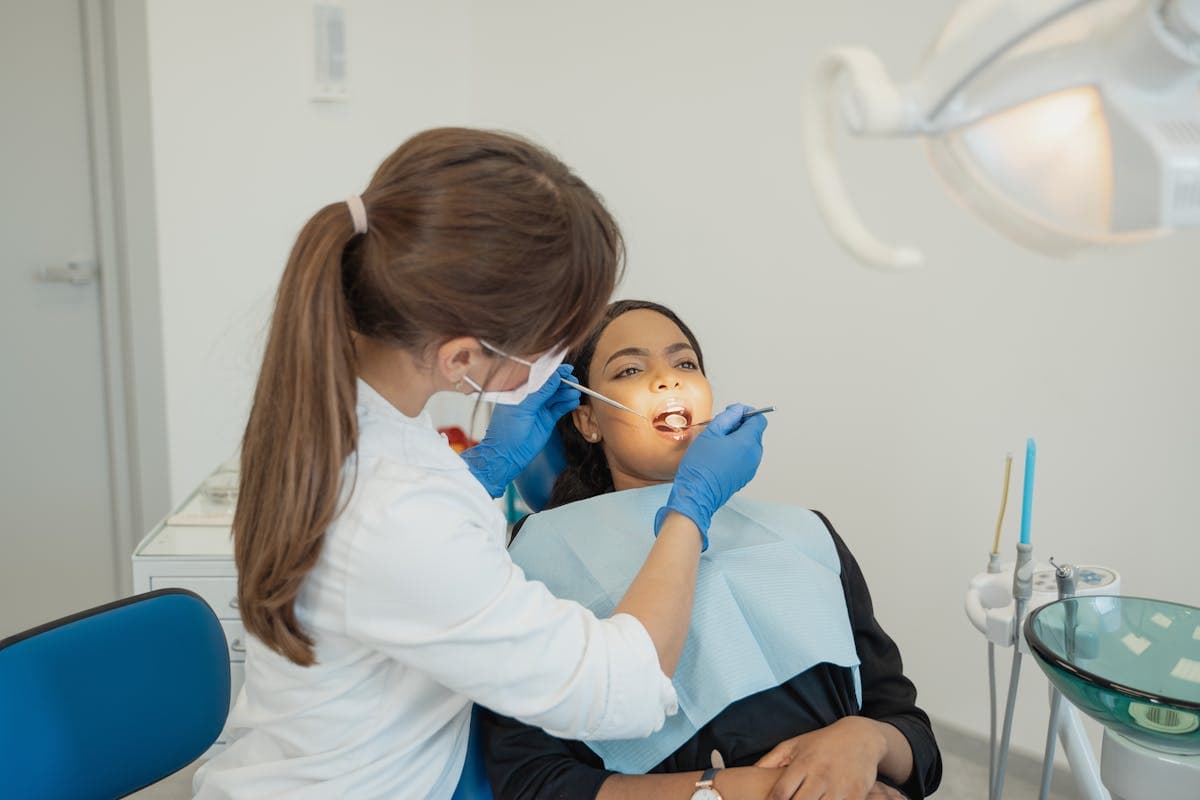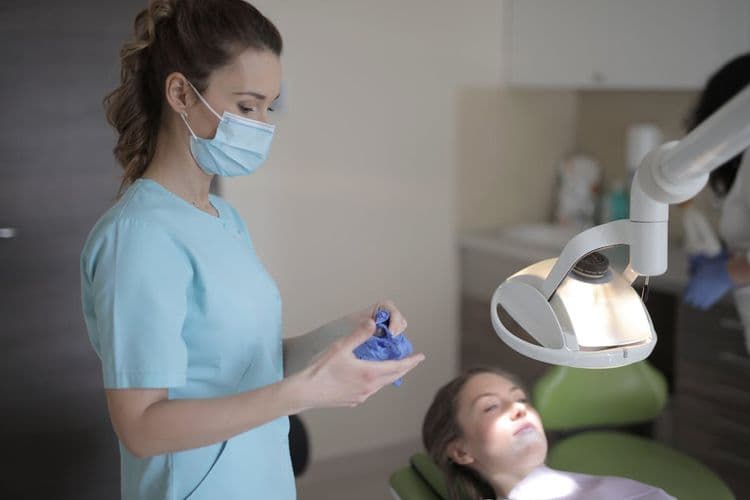Holistic dentistry, a sector that’s gaining traction, represents an innovative approach that weaves the connection between oral health and the overall physical and mental well-being. This practice emphasizes the use of biocompatible materials, advocates for non-toxic treatments, and underscores the importance of preventive care. The uniqueness of this approach is its consideration of the patient’s physical, emotional, and spiritual aspects while treating dental issues. The question then arises, could this thorough view of health, which encourages better nutrition, stress management, and natural remedies, be the future of ideal oral and systemic health?
Understanding Holistic Dentistry
What is holistic dentistry, one might ask? Holistic dentistry, also known as biological dentistry, is a field that combines traditional dental procedures with a broader understanding of a person’s overall health. This type of dentistry prioritizes the use of biocompatible materials, which are materials that do not cause harm to the human body, instead of traditional dental materials that may contain potentially harmful substances like mercury. The aim is to provide dental care that is safe, non-toxic and sustainable. Holistic dentistry also emphasizes a patient centered approach, where the dentist considers the patient’s total well-being - physical, emotional and even spiritual - while treating their dental issues.
Principles Behind Holistic Dentistry
The guiding principles of holistic dentistry revolve around the interconnectedness of oral health and overall well-being. It is a practice rooted in the understanding that the mouth is not an isolated entity, but a fundamental part of the larger health system of the body.
- Biocompatible Materials: Holistic dentistry opts for materials that are bio-friendly and less likely to cause adverse reactions within the body.
- Patient-Centered Approach: Each treatment plan is personalized, considering the patient’s overall health, nutrition, lifestyle, and preferences.
- Preventive Care: Emphasis is placed on maintaining strong oral health to prevent future problems, rather than just treating symptoms.
- Whole Body Connection: Holistic dentists understand the links between oral health and systemic health, considering potential impacts of dental issues on the rest of the body.
Comparing Holistic and Traditional Dentistry
While both holistic and traditional dentistry share the common goal of maintaining and improving oral health, key differences exist in their approaches and philosophies. Traditional methods focus on treating symptoms of dental issues primarily through surgical procedures and pharmacological interventions. On the other hand, holistic practices view oral health as an integral part of the body’s overall wellness, addressing underlying causes of dental problems and promoting preventive care. Holistic dentistry also places a strong emphasis on using biocompatible materials to avoid potential toxicity. While traditional dentistry tends to segregate oral health from general health, holistic dentistry considers the two inextricably linked, advocating for treatments that benefit the entire body. The choice between the two often depends on personal health beliefs and priorities.
Holistic Dentistry Techniques
Holistic dentistry incorporates a variety of unique techniques that emphasize natural dental care methods. These approaches not only aim to maintain oral health but also consider the body’s overall wellbeing. This section will explore these techniques in detail, discuss their benefits, and establish how they promote a thorough approach to dental care.
Natural Dental Care Methods
A vast majority of dental practices today are making a shift towards holistic dentistry techniques, often referred to as natural dental care methods. These methods are not only environment-friendly but also aim to improve oral health without the use of harsh chemicals.
Here are four significant natural dental care methods:
- Oil Pulling: This ancient technique, often using coconut oil, helps eliminate harmful bacteria and promotes healthier gums.
- Herbal Treatments: Various herbs like neem, clove, and aloe vera are known for their natural antibacterial and anti-inflammatory properties.
- Probiotics: These promote excellent oral health by balancing the mouth’s microbiome.
- Natural Toothpaste and Mouthwashes: Made from natural ingredients, these remedies can be effective and safer than their commercial counterparts.
Benefits of Holistic Techniques
Embracing the principles of holistic dentistry can yield numerous benefits. This approach emphasizes the use of natural remedies, minimizing the exposure to harmful chemicals often found in traditional dental treatments. For instance, a holistic dentist may recommend herbal mouthwashes or toothpaste made from natural, non-toxic ingredients.
An integral part of holistic dentistry is patient education. Dentists educate patients on the importance of overall health in maintaining oral hygiene, encouraging practices like balanced nutrition and stress management. This all-encompassing approach guarantees that the patient understands the connection between oral health and general wellbeing, empowering them to make informed decisions about their care.

Benefits of Holistic Dentistry
Holistic dentistry, with its thorough approach, offers a myriad of benefits that warrant exploration. Significantly, it promotes overall health by addressing dental issues as part of the whole body system. Additionally, its preventive care approach emphasizes early detection and natural treatments, mitigating the need for invasive procedures.
Understanding Holistic Dentistry
While the field of dentistry has traditionally focused on the prevention, diagnosis, and treatment of oral diseases, an emerging approach known as holistic dentistry is gaining recognition for its extensive view of oral health. Rooted in a holistic philosophy, this approach places a strong emphasis on patient-centered care, focusing on the individual’s overall wellbeing rather than merely treating symptoms of oral diseases.
To fully understand holistic dentistry, consider the following elements:
- Holistic philosophy: This principle acknowledges the interconnectedness of oral health and overall wellbeing.
- Patient-centered care: Holistic dentists prioritize the individual’s unique needs and health objectives.
- Preventive approach: Rather than focusing solely on treatment, holistic dentistry emphasizes prevention and health maintenance.
- Non-toxic materials: Holistic dentistry avoids harmful substances, utilizing biocompatible materials instead.
Promotes Overall Health
Promoting overall health is a primary benefit of holistic dentistry, extending beyond the confines of traditional dental practices. This approach recognizes the mouth as an integral part of the body and aims to improve oral microbiome health, thereby enhancing general wellness. Oral microbiome health is pivotal to preventing diseases such as gingivitis and periodontitis, which can lead to systemic inflammation if untreated.
Holistic dentistry also places a strong emphasis on dental nutrition awareness. By offering dietary advice to optimize oral health, holistic dentists educate patients on the connection between what they eat and the condition of their teeth and gums. This thorough approach to dental care can lead to improved systemic health, highlighting the interconnected nature of our bodies in maintaining overall well-being.
Preventive Care Approach
In taking a preventive care approach, holistic dentistry provides numerous benefits. Instead of merely treating dental problems as they arise, this approach emphasizes the importance of maintaining a healthy mouth to prevent issues from occurring.
- Preventive Screenings: Regular dental check-ups allow for early detection and management of potential dental issues.
- Dietary Considerations: Holistic dentistry emphasizes the impact of nutrition on oral health. A well-balanced diet can strengthen teeth and gums, thereby preventing decay and disease.
- Education: Dentists inform patients about proper oral care techniques and the link between oral health and overall wellness.
- Non-Toxic Treatments: Holistic dentists use biocompatible materials for treatments, reducing the risk of adverse reactions and promoting healthier outcomes.
This proactive strategy guarantees long-term oral health and overall well-being.
Potential Risks and Concerns
Despite the growing popularity of holistic dentistry, it is essential to understand the potential risks and concerns associated with this approach. One primary concern is the potential for mercury exposure. Holistic dentists often remove amalgam fillings, which contain mercury, due to a belief that they can influence systemic health. However, improper removal can increase mercury exposure. Another significant concern pertains to fluoride alternatives. Holistic dentists usually discourage the use of fluoride, suggesting alternatives like xylitol. While these alternatives may hold some benefits, they lack the extensive research and proven effectiveness of fluoride in preventing caries. Consequently, patients must weigh the potential risks of mercury exposure and the unproven nature of fluoride alternatives before opting for holistic dentistry.
Finding a Holistic Dentist
Wondering how to find a trusted holistic dentist? The journey to locate a reliable professional in this field requires careful consideration of several factors.
- Holistic Certifications: Verify that the dentist has credible holistic certifications. This indicates they possess the necessary knowledge and adherence to holistic practices.
- Dentist Recommendations: Ask for recommendations from trusted sources. This could be a family member, friend, or your primary healthcare physician.
- Online Research: Check online reviews and the dentist’s website. Look for testimonials and their approach to holistic care.
- Interview the Dentist: Schedule an initial consultation. This allows you to ask questions about their practices, philosophies, and certifications.
Transitioning to Holistic Dental Care
Having located a reputable holistic dentist and understood their practice philosophy, the next step involves moving to holistic dental care. This process encompasses integrative approaches that align physical, emotional, and spiritual wellness with dental health. It’s not merely about treating symptoms but addressing root causes of dental issues. It implies a concerted effort to move away from traditional dental practices that may use potentially harmful substances, towards natural, non-toxic alternatives. Essential to this shift is patient education. Holistic dentists prioritize informing patients about the interconnection between oral health and overall wellbeing. They guide patients through dietary modifications, proper oral hygiene practices, and stress management techniques – all critical components of holistic dental care. This shift is a journey towards ideal health, requiring patient commitment and an open mind.
Frequently Asked Questions
Does Insurance Cover Holistic Dental Treatment?
Insurance coverage varies widely based on individual policies and specific treatment options. It is crucial to consult with your insurance provider to understand the extent and conditions of coverage for non-traditional treatment modalities.
Are Holistic Dentistry Services More Expensive Than Traditional Ones?
In a cost comparison, holistic services can sometimes be pricier than traditional ones due to the unique treatment value they offer. However, the expense varies widely depending on the specific service and geographical location.
Is Holistic Dentistry Safe for Children and Elderly People?
Yes, incorporating child safety and elderly care, the practices are generally safe. The emphasis on non-toxic materials and preventive care in this approach can be beneficial for children and elderly people alike.
How Long Does a Typical Holistic Dental Treatment Take?
The duration of treatment varies depending on the individual’s needs and the complexity of the case. However, the patient’s experience is often positive due to the thorough and personalized approach used in such treatments.
Can I Get Emergency Dental Care From a Holistic Dentist?
Yes, emergency procedures can be performed by practitioners who utilize holistic approaches. These dentists are equipped to handle urgent dental care, while adhering to principles that focus on overall health and well-being.


